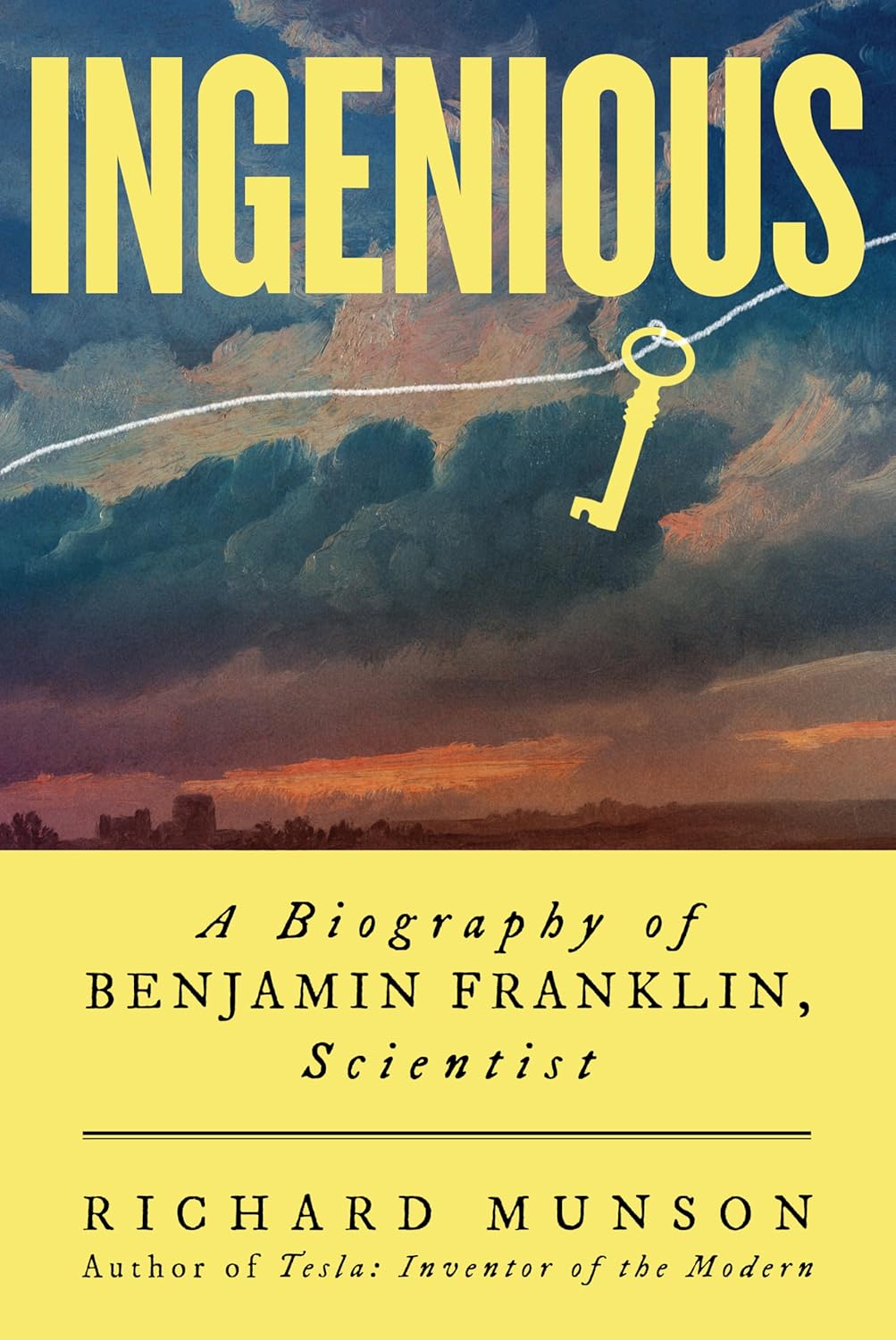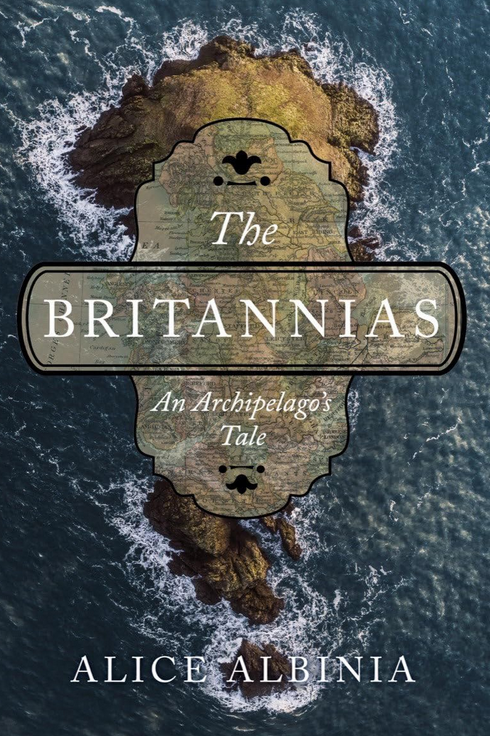Ingenious: A Biography of Benjamin Franklin, Scientist
- By Richard Munson
- W.W. Norton & Company
- 256 pp.
- Reviewed by Stephen Case
- November 29, 2024
A mesmerizing account of the endlessly curious Founding Father.

The 1700s saw major advances in science, but none as significant as those in the centuries of Newton (1600s), Maxwell (1800s), or Einstein (1900s). Still, 18th-century gains were impressive and included, among others, leaps made by Daniel Bernoulli (hydrodynamics), Joseph Black (the harnessing of steam energy), Daniel Gabriel Fahrenheit and Anders Celsius (temperature-measurement scales), Antoine Lavoisier (the dispelling of the phlogiston theory), and Joseph Priestley (the discovery of oxygen).
Add to the roster Founding Father and gentleman researcher Benjamin Franklin. His groundbreaking work on electricity, along with his many inventions, are all pleasingly chronicled by Richard Munson in Ingenious: A Biography of Benjamin Franklin, Scientist. Readers will regret not a single minute spent with this lively, entertaining, and informative work.
Franklin’s modern sensibilities and analytical mind were revealed even in his edits to the Declaration of Independence. As to the notion that “all men are created equal,” Thomas Jefferson, scrivener of the first draft, drew on concepts of moral authority, originally writing, “We hold these truths to be sacred and undeniable.” It was Franklin, explains Munson, who “tightened the wording and declared [the truths] to be ‘self-evident,’” thus showing himself to be a proponent of observable reality over supernatural authority.
Franklin most fully — and famously — embraced such empiricism in the lab. He was intrigued by the Leyden jar, a primitive battery that he called “miraculous.” Before its invention in 1745, static electricity was familiar to anyone who’d ever shuffled across a carpet, touched a metal doorknob, and gotten zapped, yet electricity as a broader phenomenon was poorly understood. The Leyden jar changed all that and ignited in Franklin a fascination that was, well, electric. He wrote of his experiments with electricity that, in 1747, he had “little leisure for anything else.”
Soon, he began developing hypotheses about electricity, and the Royal Society in London took notice. (Much later, in the 20th century, Nobel laureate Robert Millikan would hail Franklin as “the progenitor of modern electron theory.”) In 1751, a year before Franklin’s famous kite-and-key experiment, the Royal Society published a pamphlet of his writings on electricity. “With ten separate editions,” recounts Munson, “it was one of the most…noted scientific book[s] by an American of the eighteenth century.”
While not the first to speculate that lightning was electric, “Franklin was the first to devise trials to prove the connection between lightning and electricity.” This was, of course, the famous 1752 experiment in which, using a Leyden jar, a kite, “an old key, a silk thread, some sealing wax, and a sheet of paper, Franklin discovered the identity of lightning and electricity.” Pieter van Musschenbroek, though himself a co-inventor of the Leyden jar, remarked of Franklin, “Nobody has discovered more recondite mysteries of electricity.”
In later years, during his brilliant service as ambassador of the Continental Congress to the court of Louis XVI in Paris, Franklin, his vision deteriorating in old age, could not see both the food on his plate and the companions across from him at dinner parties. The solution? He combined in one pair of frames the lenses from reading glasses and from spectacles used for distance. Presto! The world’s first bifocals.
He also concocted an unusual musical instrument, the glass armonica, which produced sounds based on the then-common “parlor game of rubbing wet fingers across the tips of different-sized glasses filled with water to indicate levels, as each note required.” In his initial score for the opera “Lucia di Lammermoor,” Italian composer Gaetano Donizetti specified the spooky-sounding armonica to accompany Lucia’s “mad scene.” Some opera companies use it still.
These and other endlessly fascinating facts about Franklin the scientist, Franklin the diplomat, Franklin the entrepreneur, and Franklin the polymath permeate Munson’s delightful book. I highly recommend it.
Stephen Case is a member of the Independent’s board of directors and serves as its treasurer.

